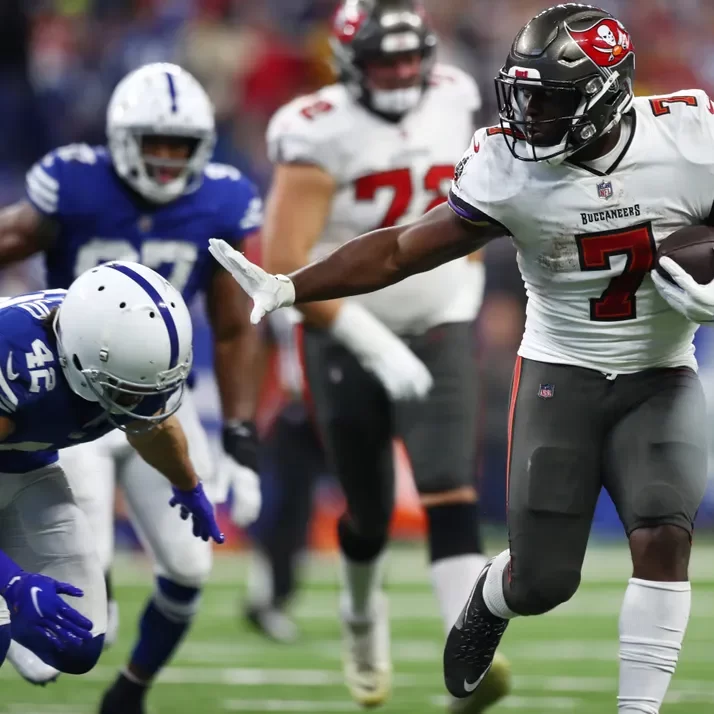Overview of Fantasy Football Playoffs
The end of the regular season in fantasy football paves the way for the playoffs. This is where the best teams in your league battle for the championship title. Understanding how fantasy football playoffs work is crucial for any manager aiming for the win.

Fantasy football playoffs often mimic the actual NFL playoff system, yet they can have variations. The league commissioner decides the playoff structure, usually through settings on the platform like Yahoo, ESPN, or CBS. In most leagues, the playoffs involve a set number of teams vying for the ultimate victory in head-to-head matchups.
Typically, the playoff system is based on regular-season performance. The teams with the highest wins and points secure their playoff spots. Their ranking then determines who they will face in the initial rounds. As the rounds progress, the competition tightens until two teams are left standing for the championship game.
However, the playoff format can vary, with options like four-team or six-team brackets being popular. Some leagues use division winners to set up playoff seeding, which adds a twist to the competition. The key is to know your league’s specific rules and format well before the playoffs begin. This knowledge will guide your strategy and help sharpen your focus towards clinching that coveted fantasy championship.
For those not in playoff contention, many leagues offer consolation brackets. This keeps the competition lively for all teams, regardless of their standing. Every fantasy football manager, whether aiming for glory or playing for pride, stays engaged through the final weeks of the NFL season.
Setting Up Your League’s Playoff Format
Designing the right playoff structure is key to an exciting fantasy football season finale. As the commissioner, you get to shape the competition by choosing how many teams will compete and what seeding approach to use. Below, we break down common formats so you can decide which suits your league best.
Four-Team Playoff Formats
In a four-team format, typically the top four perform under a straight knockout system. The team with the best record grabs the top seed. The next three seeds fall in line based on their standings. In the semifinals, the first seed faces the fourth, and the second seed takes on the third. Winners then clash in the championship game to claim the fantasy title.
Six-Team Playoff Formats
With six teams, the dynamics change. The two teams with the best records sit out the first round with byes. The third seed challenges the sixth, and the fourth faces the fifth. The victors advance to play the top teams in a thrilling fight for the fantasy crown. This format keeps more teams in contention longer, boosting engagement.
Divisional Playoff Formats
For leagues with divisions, playoffs can reflect real-life NFL divisional structure. The winners of each division secure the highest seeds, regardless of their overall record. They are followed by the highest-scoring non-division winners as wild-card entrants. This division-based format often fuels rivalries and adds an extra layer of strategy to your league.
Engaging the Rest of the League: Consolation Playoffs
Consolation playoffs are a great way to keep the entire league active. They ensure that even teams outside the main playoff bracket stay competitive. Here’s how they work and why they’re important:
Keeping Interest Alive
For teams that didn’t make the top spots, consolation playoffs offer a second chance at victory. It encourages managers to keep setting their lineups and making strategic moves. This maintains a high level of engagement across the league.
How Consolation Playoffs Work
In these playoffs, teams that missed the main postseason get to compete. They follow a similar format to the main playoffs, often with their own trophies or prizes. It’s like a mini-tournament where everyone has a shot at ending the season on a high note.
Benefits of Consolation Playoffs
Besides keeping interest, these playoffs can prevent teams from ‘checking out’ early. They can also be a fun way to test out new strategies without the pressure of the main playoffs. Ultimately, they help to foster a more connected and active community within your league.
The Consolation Playoff Structure
The structure often mirrors the main playoffs, with head-to-head matchups and knockout rounds. However, it may include fewer teams. Sixteen team leagues might only have a four-team consolation ladder, while twelve team leagues could include all non-playoff teams.
Ending on a Positive Note
Consolation playoffs offer a chance to end the season with a win. They can be a morale booster and give everyone something to look forward to each week. In short, they’re a win-win for league engagement and competition.
 Breaking Down Fantasy Football Tiebreakers
Breaking Down Fantasy Football Tiebreakers
When teams have equal records, tiebreakers determine playoff spots. Understand your league’s rules for these situations. Here are common tiebreaker criteria:
Total Fantasy Points Scored
If teams are tied, check who scored the most fantasy points during the season.
Head-to-Head Record
Next, look at how tied teams performed against each other. The better record wins.
Divisional Record
If there are divisions, compare the teams’ records within their division.
Fantasy Points Against
Sometimes, the team with fewer points scored against them wins the tie.
Other Methods
Some leagues use unique tiebreakers like a coin flip or a game of Madden.
Knowing these tiebreakers is key. They can change your strategy nearing playoffs.
Optimal Timing for Fantasy Football Playoffs
Choosing the right time to start the fantasy playoffs is key. It aligns with the NFL season’s climax and ensures a fair competition. Here’s how to get the timing right:
Aligning with the NFL Schedule
Fantasy playoffs typically begin in Week 15 of the NFL. This is because NFL teams may rest their starters in Week 18. Starting early avoids those issues. It spans two or three weeks, ending in either Week 16 or 17. This allows fantasy players to enjoy the NFL’s final week without fantasy pressure.
Anticipating Player Rest
Be aware that NFL teams with secure playoff spots often rest key players later in the season. Adjust your strategy to account for these changes to avoid last-minute surprises.
Considering Engagement
An optimal start time keeps the league engaged through the end. It builds excitement as the NFL heads towards its own playoffs. And it prevents overlapping with holidays for most players.
Balancing Fairness and Fun
The goal is to be fair to all managers while keeping the game fun. The playoff schedule should balance competition with enjoyment, without dragging on too long.
By setting up the fantasy football playoffs with careful timing, you maintain the enthusiasm and integrity of the game. It’s crucial to consider how the NFL’s schedule and approach towards the season’s end will affect your fantasy league’s playoffs.
Preparing for Fantasy Football Playoff Management
Managing your fantasy football team during the playoffs requires attention to detail and strategic planning. Here’s how you can prepare and increase your chances of winning your league’s championship.
Monitoring the Real NFL Season
Keep an eye on NFL team standings and playoff prospects. Knowing which teams may rest players can influence your fantasy lineup decisions. Stay updated on injuries, team news, and performance trends.
Strategic Considerations for Weather Impact
Watch the weather forecasts, especially for teams playing outdoors. Bad weather can affect players’ performances. Adjust your lineup if necessary to optimize player performance.
Knowing Your League’s Format and Rules
Understand your league’s playoff format and rules thoroughly. This knowledge will help tailor your strategy effectively. Ensure you’re clear on how ties are broken and what criteria are used.
Understanding Trade and Waiver Deadlines
Mark the trade and waiver deadlines on your calendar. These are critical dates for finalizing your roster. Acting within this timeline can be pivotal for your playoff success.
 Tips for Those Who Missed the Playoffs
Tips for Those Who Missed the Playoffs
Missing the playoffs in fantasy football can be disappointing. However, it’s not the end of your season. Here are tips to stay engaged and position yourself for next year’s success.
Use Consolation Playoffs as Practice
If your league has consolation playoffs, use them to test strategies. It’s a chance to see what works without much pressure.
Analyze Your Draft and Roster Moves
Look back at your draft picks and the moves you made. Identify what went wrong and plan to improve next season.
Keep Up with NFL Developments
Stay informed about the NFL. Injuries, trades, and performance trends can guide your next draft.
Learn from the Top Teams
Observe the teams that made the playoffs. Note their strategies and try to incorporate them into your approach.
Plan Your Draft Strategy
Use the offseason to prepare for next year’s draft. Research rookies, watch for free agent moves, and set up mock drafts.
Stay Active on the Waiver Wire
Don’t ignore the waiver wire just because you’re out of the playoffs. Pick up potential breakout players for next year.
Be Ready for Next Season
Finally, remember that every season is a new opportunity. Prep for the next one, set your goals, and come back stronger.